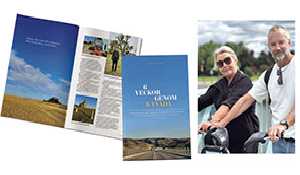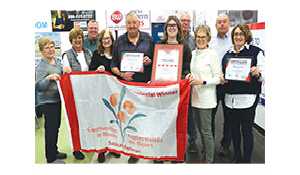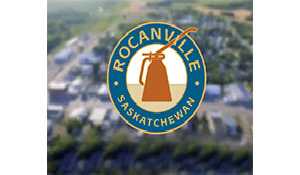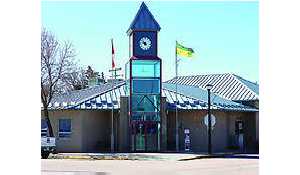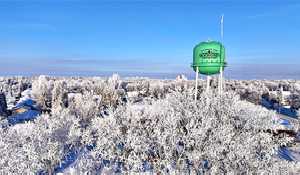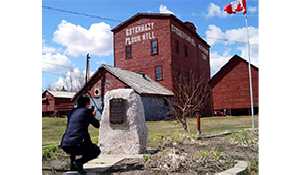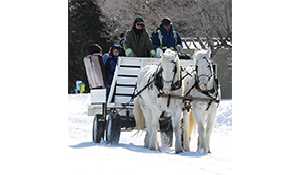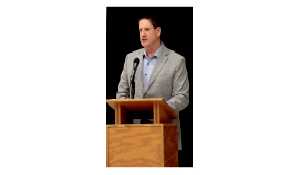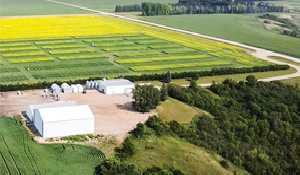Farmers, farm groups say the next government needs to do more for agriculture
April 28, 2025, 11:18 am
Ryan Kiedrowski, Local Journalism Initiative Reporter


After the election on April 28, local farmers say they hope the next federal government takes interests and concerns of the agriculture industry more seriously.
“I think the biggest thing with any politician—whether it’s federal or provincial—is we have to stop using food as a political football,” said Moosomin-area producer Trevor Green. He pointed to the example of China imposing 100 per cent tariffs on Canadian canola oil and meal in response to the equal Canadian tariff on electric vehicles from China.
“Canada puts EV tariffs on China. What does China do? They flip-flop back, and they put tariffs on canola oil, which they don’t buy a lot of anyway,” Green said, adding that the 25 per cent retaliatory tariff the Chinese have imposed on Canadian pork has been quite impactful.
“It’s really hurting our pork industry,” he said. “There’s all this talk of who’s going to protect supply management in Canada. Every time Quebec wants to protect supply management, the U.S. hammers our beef. It’s food sustainability, and we have to quit using food as a political football.”
The tariff situation in general has ripple effects across the board, establishing an environment of confusion.
“When the tariffs were announced, we took a pretty significant hit on our canola prices,” said Bill Prybylski, President of the Agriculture Producers Association of Saskatchewan. “They’ve since rebounded somewhat. We would like to see some resolution to that as soon as possible, with some type of a negotiated settlement.”
Another push from APAS has been for export sales data so producers know what kind of playing field they’re working with.
“We can know what type of sales are on the books and where’s all this commodity stuff that we’re growing, where’s it all going,” Prybylski said.
The uncertainty is what producers would like to see removed.
“It all creates instability in the market, and it creates fear,” explained Green in reference to beef prices. “Any time there’s instability, it always affects the price a bit, but we’re a long ways away from selling calves. We hope that it’s all straightened out by then, and everything’s on a steady course by fall. Same with the crops, there’s a little bit of crop in the bins, but not a lot.”
In the case of the Chinese canola tariff, the real impact is on canola meal, which has a more finite shelf life than other forms of the product.
“They’re our second largest market,” Prybylski said of China. “And certainly, we’d like to diversify our market to a certain extent. Seed is one thing, but the canola meal is another; that market is an on-demand market. It’s pretty hard to store canola meal. Canola seed can store for a fairly lengthy time, but the canola meal is a perishable item that has a very limited shelf life, so it needs to get to its final destination quickly.”
Canola is an extremely important crop in Saskatchewan, and not just for those growing it.
“You look at the whole canola industry just in Saskatchewan, the jobs that are created, all the crush plants, right from construction, there’s lots of jobs there in constructing these, the upgrades that they’re doing now and building on,” said Blake Duchek, who farms in the Atwater/Stockholm area. “And then, once they’re up and running, they employ a lot of people. There’s lots of spinoffs from the canola industry, and that doesn’t seem to matter to them.”
He also pointed to the rebounding price of crop, which took a slight hit when the Chinese tariffs were first reported.
“The States, they actually buy more of our canola than China does,” Duchek said. “And surprisingly, when that Chinese tariff was announced, canola went down to $12.50 a bushel.”
Recent numbers now indicate $15.50 per bushel.
“It went down for a week, and all these buyers make their money off hedging and everything, and now the price is higher than it has been in the last year,” Duchek said.
The whole canola tariff situation has some producers wondering if perhaps alternative markets aren’t such a bad idea.
“It might be short-term pain for long-term gain if we develop new markets,” said Moosomin-area producer Jeff Warkentin. “It gives us more options going forward.”
Ultimately, Warkentin isn’t shaken by the events, and still plans to put canola in the ground this year.
“It hasn’t changed any of our plans,” he said. “If you don’t sow canola, what else do you sow? Nothing else is showing record profits. Grow a little bit of everything. There’s volatility in the markets right now, but volatility breeds opportunity, too.”
Calling for change
Some producers say they feel agriculture is simply forgotten about by federal leaders. This is coupled with indifference and apathy in how speaking up for agriculture seems to fall on deaf ears.
“It would be a common sentiment in the West that everybody’s looking for change,” said Warkentin. “No matter who gets in, we just want somebody that’s pro-agriculture, pro-energy, and will pay attention to us out here in the West.”
Duchek agrees, and is not anticipating much change in local ridings.
“I don’t think it matters much to the local ones, because they know they’re going to get elected here,” he said. “In a rural setting, the Conservatives know they’re going to get in.”
Regardless of what political stripe people align with, the overall confusion of the past few months have had their toll.
“All that uncertainty, it’s hard on our business,” said Gerald-area producer Kevin Hruska. “Everybody just kind of shut their wallets and are riding the storm out, the chaos. Still, the worst tariff we’ve ever experienced is the carbon tax. We need a Conservative government, and that’s all there is to it!”
Government response
How governments have responded to tariff threats has created differing results. On the federal side, Green says knee-jerk reactions while in the midst of a Liberal leadership race and an election have not been beneficial.
“We haven’t had a functioning government since December 17,” Green said. “Our trade partners see that. Our neighbours see that. If you’re in the business of buying products from people and the company that you’ve been buying products from is showing a lot of instability, CEO’s getting fired and CEO’s not showing up for work, it kind of makes you question whether you’re going to buy products from those people.”
Conversely, the provincial government took a more moderate approach.
“I think [Premier] Scott Moe has handled it very well,” Green said. “He has not shot off from the cuff, he’s kept his rhetoric very low. Sometimes, not doing a lot when you’re dealing with a guy like Trump is maybe the best course of action.”
Members of the Saskatchewan government including the Premier, Ag Minister and the Minister of Trade and Export have all hit the road for various meetings and trade missions.
“There’s always trades going on,” Prybylski said. “We haven’t seen any significant amounts going to other countries, but I think the seeds have been sown that their government has made those contacts. We certainly appreciate the effort that they’ve put in to making those contacts in those other countries. Any time those types of relationships can be built, it certainly will provide fruit down the road. I’m optimistic that there will be opportunity for sales into other countries, but I’m not aware of anything as of yet.”
Some positives
There are places where some producers say the government has managed to get things right—for example when the federal Agriculture Minister, Kody Blois, was the lone Liberal MP who voted against Bill C-234 that sought to include the carbon tax on grain dryer usage.
“I’ve known Kody for quite a few years, and while we probably differ on our political views, I certainly appreciate the work that he’s been doing for agriculture,” Prybylski said. “I think he did more in the only week that he was in as ag minister than what had happened from that department in the last couple of years.”
“He was, he was definitely in favour of removing the carbon tax,” Prybylski continued. “He’s done a few things just in that week with changes to the agri-stability program. At least there’s some recognition that there’s a potential for some harm in the ag sector in Western Canada.”
However Prybylski said there’s always room for improvement, pointing to tweaking the terms in the federal government’s agriculture programming as an example.
“Things like the Advanced Payment Program, I would like to see that limit increased to $350,000 and become a permanent every spring,” he said.
Other examples include placing the Canadian Food Inspection Agency back in the Agriculture portfolio instead of its current placement in Health Canada.
“That never made a whole lot of sense to me in the first place,” Prybylski says.
Making good on the National Supply Chain Task Force’s May 2023 recommendation for the federal government to expand railway inter-switching zones is another idea with roots.
“Extended inter-switching on the railroads was something that the federal government introduced as a pilot project, but we would like to see that become a permanent fixture,” said Prybylski. “And some extended inter-switching miles, rather than limiting it to a smaller distance.”








